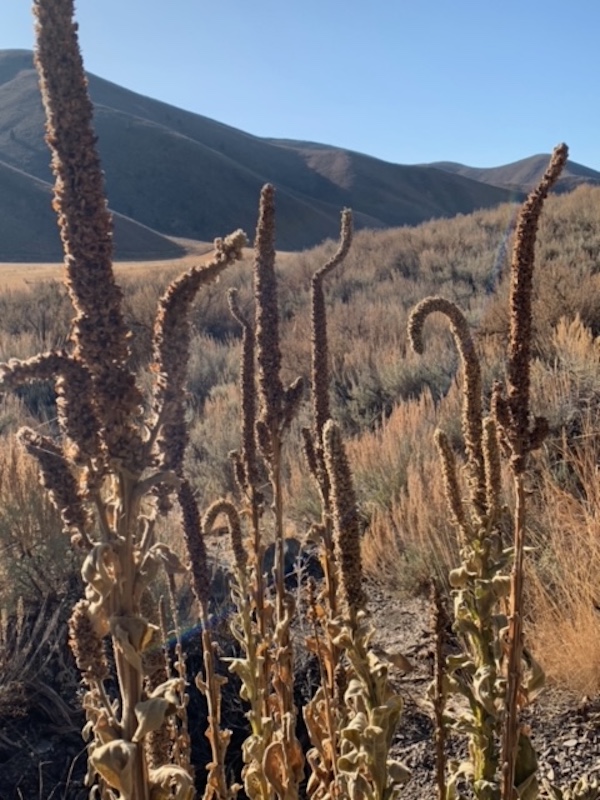Excerpted from Rob Gieselmann’s new book, Through the Wilderness, available as a Lenten devotion at: https://www.parsonsporch.com/episcopal-books/through-the-wilderness-rob-gieselmann
Unfeignedness: Ash Wednesday
first delivered 2012, St. Stephen’s Episcopal Church, Belvedere, CA
Sometimes arcane language is more precise than modern language.
The General Thanksgiving is found in the service of Morning Prayer. In Morning Prayer, Rite II, the prayer begs God to create in us an awareness of God’s mercies, that we might therefore be “truly” thankful. The same prayer in Rite I asks God to give us a “due sense” of God’s mercies, that our hearts might therefore be “unfeignedly” thankful.
Unfeignedly thankful is not quite the same as truly thankful. To feign something means to fake it, to put on the appearance of. Being feignedly thankful means to offer the sham of thankfulness. Which is what most people do on Thanksgiving. Feign thanks. Unfeignedly is is unmasked, thankfulness that is genuine, deeply felt, raw.
Jesus sits down on the mountain to teach his disciples. And he teaches them about raw faith, honest faith.
*Beware of practicing your piety before others in order to be seen by them.
*When you give alms, do not let your right hand know what your left is doing.
*When you pray, pray in secret.
When it comes to God, your relationship is to be real, not sugar-coated or manufactured. Rather, it is to be the scraping of flint against steel.
Honest.
Raw. Unfeigned.
I have without a doubt felt the closest to God at my most raw moments. But raw moments are rare – because of the veneer, because of the coat of armor we wear constantly.
And yet, there is only one sacrifice to God that is acceptable to God, a broken and contrite heart. Unfeigned.
Still, we are real people living in a real world. Very little that we do or say or even believe is unfeigned. Very little is honest in all purity. We have faith, yes, but our faith is tainted not only with doubt, but with its self-centered nature, as well. We find ourselves and not God at the center of our faith. We are.
- God forgive me.
- God help me
- God care for those I care about.
Yes, we attend church – but it is to see our friends. Or to help our children. It is to fill up our spiritual tank. It is to be seen by our friends. To be seen by our children. To be seen by the priest.
Feigned faith.
Beware of practicing your piety before others in order to be seen by them. Jesus knew of that which he spoke.
Today, on Ash Wednesday, the priest steps solemnly from person to person at the altar rail, and takes his own failed thumb, presses it into the oil, and then into ashes, and then onto your forehead.
He might as well slap you on your cheek – a hard slap – for he says the most unkind words, the most unfeigned words, of the entire year:
You are dust, and to dust you shall return.
Leaving you completely raw, completely dead.
The truth is there for everyone to see: you are human after all. You are human after all. You are human after all. A mere bag of bones.
In the story of Ezekiel and the dry bones, Ezekiel looks over the valley and sees it full of bones, the disparately scattered bones of Israel, dry and brittle.
At God’s command, Ezekiel speaks to them. You know the story – bone attracts bone, forming skeletons, and skeletons attract flesh, and for all the world these bodies look like people, only there is no breath in them.
No anime, no soul, no spirit, and it is not just that they have no human spirit, they have no God-spirit. The ruach or breath of God is absent.
So Ezekiel commands the four winds to come and breathe upon these slain, and only then it was that they lived,
and it is ambiguous whether the bones live again because their own spirit re-enters, or because the spirit of God enters.
The Mystic Julian of Norwich writes, God is nearer to us than our own soul and God Is the means whereby our Substance and our Sensuality are kept together so as to never be apart.
God, you see, lives between your bone and spirit.
Not out there someplace, but inside of you.
God in you, and perhaps you thought God was elsewhere, many, many times in your life wondering, God, where are you? Where are you?
But the question is not, Where are you? But, Where am I?
Am I present, am I present in my honesty, stripped down to the bare bones, is it I who present myself to God, or is it another, a manufactured me, one I have chosen to become, rather than who I really am?
Theology professor, Bob Hughes, wrote a book about our dust-ness, called Holy Dust. Holy Dust – and in his book, Bob points out that Ash Wednesday is actually a part of the Easter Cycle, a part of Easter itself.
“Note carefully,” he writes. “We are not getting ready to celebrate Easter; we are beginning the actual celebration.”
We do not exercise the disciplines of Lent because we are afraid God might not be merciful – and we must compel God’s presence into our lives by piety – or by fooling God into believing that we really are good enough – but because God can be nothing but merciful. God has a proprietary interest in you, living between your bone and soul.
Today is about one thing and one thing only: raw honesty. Unfeignedness.
The objective of the season is Resurrection, and resurrection comes – always comes – after death. By converting to unfeignedness.
You are dust, and to dust you shall return.

